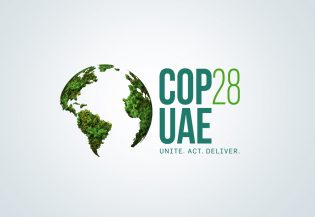
The 28th meeting of the Conference of the Parties (COP28) to the United Nations Framework Convention on Climate Change (UNFCCC) took place in UAE this year from 30th of November until 12th of December. It’s an opportunity for discussion between members of the UN on the most pressing issues related to climate change and how to tackle them without economic damage or whether it can even be beneficial for the economy as such. The main goal is to keep the average global temperature increase below 1.5 °C.
The amount of money needed for green energy transition is huge. A report from Monday 12th of December 4 states that developing countries and emerging economies will need approximately $2.4 trillion a year of investments to hit emission quotas and adapt to challenges posed by climate change.
The United Arab Emirates alone, the host of this year’s conference pledged $270 billion to finance a green economy development until 2030. Organizations such as Bezos Earth Fund, Bloomberg Philanthropies and the Sequoia Climate Foundation want to help reduce methane emissions and other non-carbon dioxide greenhouse gases. Khaled Mohamed Balama, Governor of the Central Bank of the UAE said that the banking sector needs to contribute to medium-term economic plans as well as carbon neutrality by 2050.
As the US is facing criticism for pledging only the fifth of what United Arab Emirates has, Camala Harris, the US vice president claimed that the US has invested more than $400 billion in compliance with Inflation Reduction Act which laid down the foundation for green investments. Rockefeller Foundation back the early retirement of coal power plant South Luzon Thermal Energy Corporation in Philippines as early as 2030, a decade earlier using carbon credits.
Dubai Financial Market has launched its project with carbon credit trade. Carbon credits are provided to companies which cannot fully cut their carbon emissions due to manufacturing needs etc. In this case the emissions are brought down gradually. When a company doesn’t use all their carbon credits, they can sell them to another subject and profit from them. This way they are motivated to reduce their emissions. Those who oppose this strategy are arguing that it creates the opposite effect which is lack of motivation to cut the emissions fully as soon as possible.
Some economists claim that pouring trillions into developing countries may do more harm than good. According to them, these countries lack financial institutions, structures and management that could channel the funds to perspective projects. Investments like these in the past ended up being chaotic, overvalued the currency, created debts and when the investors get spooked, the country falls into economic turmoil.
More than 120 countries have signed a declaration to protect people from the consequences of global warming, however, there was no mention of fossil fuels. Scientists including physicians in white coats and other activists held a small protest on Sunday the 11th in front of the COP compound as a response to this.
The Global Carbon Budget report released on Tuesday 5th of December says that global CO2 emissions that reached record level last year should plateau in 2023 due to slightly less land use like deforestation. Report made by scientists from more than 90 institutions claims that CO2 emissions from fossil fuels will increase by 1.1% compared to last year.
On the positive note, USA and EU CO2 emissions have dropped, partially due to coal plant retirement. In total 26 countries, mostly in Europe, representing 28% of the world now have a downward trend in their CO2 production, according to researchers.
Sources: Reuters, Investing, Wall Street Journal
Photo: Shutterstock
